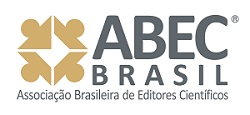Supplementation of the commercial diet of Nile tilapia (<i>Oreochromis niloticus</i>) with DL-methionine and soybean oil under feed restriction
DOI:
https://doi.org/10.5039/agraria.v17i3a1407Keywords:
aquaculture, bioflocs, feeding restriction, water qualityAbstract
This study aimed to assess the strategy of supplementing the commercial diet of Nile tilapia juveniles with DL-methionine and soybean oil, in BFT culture tanks, by monitoring the water quality, bioflocs composition, and growth performance. The commercial diet daily allowances were restricted by 25% and different levels of DL-methionine (0 and 1) and soybean oil (0, 0.6, and 1.2%) supplementation were carried out, having the delivery of artificial diet as reference. The tanks submitted to feeding restriction exhibited lower concentrations of organic matter, settleable solids and total suspended solid in water. The supplementation of the commercial diet with DL-methionine and soybean oil did not affect the centesimal composition of bioflocs. The combined use of DL-methionine and soybean oil improved the tilapia juveniles’ survival submitted to artificial diet restriction. It was concluded that the supplementation of the Nile tilapia’s commercial diet with 1.0% DL-methionine and 0.6% soybean oil may prevent the reduction of fish growth performance when the artificial diet is allowed restrictively.



